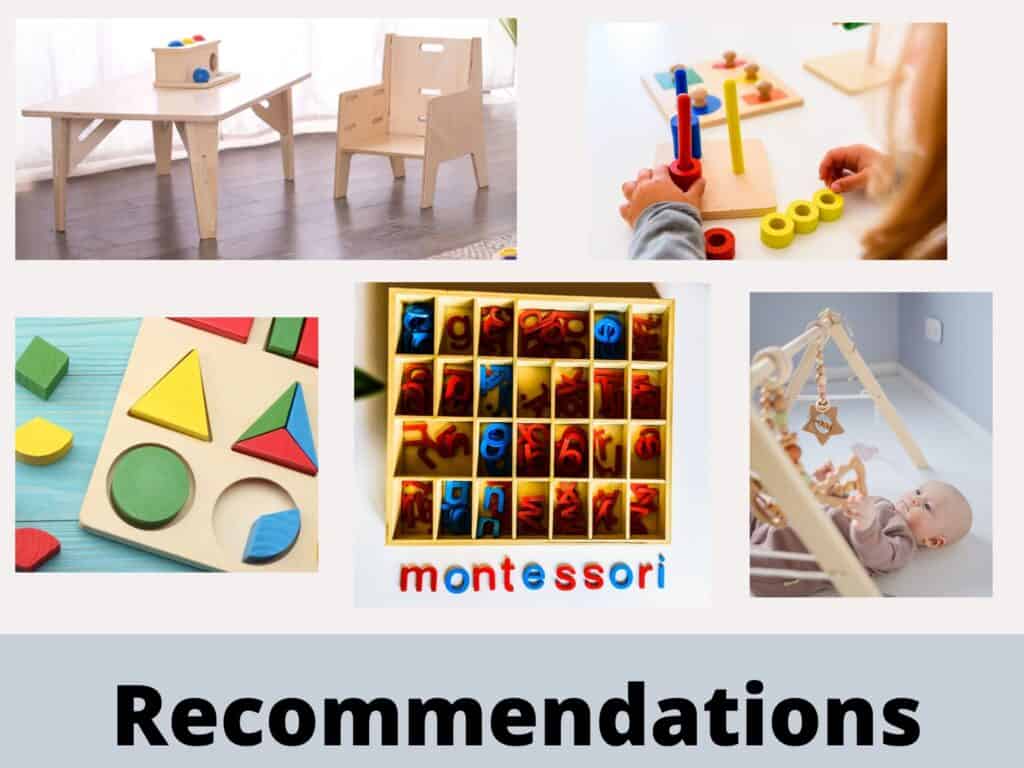Some of the best and most popular online
- North American
Montessori Center - International Online
Montessori Training Institute - The Center for Guided
Montessori Studies - Montessori Live
- Prepared Montessorian Institute
- Authentic Institute of
Montessori (aim)
(1) North American
The North American Montessori Center is actually one of the most popular centers for learning through the
(2) International Online
Similar to the North American
(3) Center for Guided
The Center for Guided Montessori Studies offers online teacher training for every age from infants to secondary school. Each program offers a Full Certificate or an Associate Certificate option.
(4) Montessori Live
Montessori Live is both an online and in-person instructional method for adults wanting to become certified to teach
(5) Prepared Montessorian Institute
The Prepared Montessorian Institute offers online teacher training for all ages of students from 0-18 years old. Their program is certified through MACTE, the
(6) Authentic Institute of
AIM offers innovative and comprehensive Montessori certification. There are several program options at varying price points, some are MACTE certified.
How Expensive are the Best Online Montessori Training Programs for Teachers?
(1) North American
Any North American
The North American
(2) International Online
The International Online
Additionally, like listed above for the North American
(3) Center for Guided
The cost of enrollment in the Center for Guided
(4) Montessori Live expenses
The cost of enrollment in the Montessori Live teacher training program is dependent on the type of certification that you are looking at achieving.
Tuition and class fee totals range from a low of just over $4,000 (Montessori Elementary II certification- you must already have an Elementary I credential) to a high of almost $10,000 (Elementary I & Elementary II certification).
(5) Prepared Montessorian Institute expenses
Tuition for the Prepared Montessorian Institute costs between $5,000 and $7,500 depending on your chosen program. Tuition assistance and scholarships are available with this program.
(6) Authentic Institute of
The cost of
Check out our other articles to learn more about becoming a Montessori teacher and how much Montessori teachers make.
Is the Montessori Method Worth While?
The commonly asked question, “is the
It also depends on what you are aiming for as an educator. Those who will be most successful with the Montessori Method are those whose interests align with
What are the main benefits of
- Students show increased levels of cooperation and concentration on school related tasks
- Students feel valued as individuals and unique for their different strengths
- Students become fluent in collaboration and learn compassion for their peers
- Students become more curious and inquisitive learners, wanting to discover truth themselves
- Students are inspired to become more creative and use their own ideas to fail and try again
What are the main benefits of
- Teachers become more inclusive, non judgmental, and understanding of extenuating circumstances
- Teachers cultivate a greater love for learning and teaching due to
Montessori ‘s personalized nature - Teachers are allowed more freedom in the classroom, and use creativity to inspire their students
What is the Main Purpose of Montessori Education?
The main purpose of Montessori education is for students to become independent thinkers and self-driven learners, qualities that will assist them throughout the rest of their life. [Source]
This purpose is different from that of traditional schools because most public schooling focuses on preparing students to succeed in college, and succeed in the workplace.
Main Principles of the
The
- It is self paced and individual
- It is hands on and experimental
- It is collaboration and creativity based
Montessori learning is largely self-paced, or what they call self-directed learning. The purpose of self-directed learning comes from the idea that everyone learns at a different pace, and through different mediums. [Source] Having each child learn according to their needs and wants allows greater growth and development.
You may have heard of the well-known Psychologist and Humanist, Howard Gardner, who created a model for the 9 different types of intelligences, known as Gardner’s Theory of Multiple Intelligences. Howard Gardner asserted that there are 9 types of intelligence that a person can be prevalent in. They are:
- Spatial Intelligence, or being able to visualize objects and places in 3 dimensions
- Intrapersonal Intelligence, or being able to understand and interpret your own motivations and emotions
- Interpersonal Intelligence, or being able to understand and interpret the motivations and emotions of those around you
- Naturalistic Intelligence, or the ability to interpret and understand the natural world around you
- Linguistic Intelligence, or being good with words and having the ability to eloquently express your thoughts and feelings
- Bodily (Kinesthetic) Intelligence, or the ability to coordinate your mind and body as one
- Existential Intelligence, or being in touch and intrigued with what the purpose of life is
- Musical Intelligence, or the ability to discern notes, techniques, styles, and understand the nature of musical compositions
- Logical (Mathematical) Intelligence, or being able to quantify and justify numerical and logical evidence to prove something

The idea behind
Different skill sets do not set some students above others, but instead, students should be taught to use their unique abilities to enhance their educational experience and learn how to be self-sufficient students.
Where Does the Montessori Approach Come From?
Who started the
The first
Beginning in 1906, Maria Montessori began what would later become a worldwide movement. Maria was an educator, physician, and scientist who was asked to create a childcare center for deprived and undereducated children.
Many doubted the students’ abilities to learn, due to their underprivileged backgrounds, which only made Maria more determined to make the center successful.
In January of 1907, Maria
The







